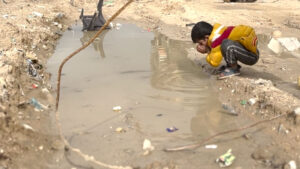

European Politicians Propose Disqualifying Israel from Eurovision 2024
Share your love
The Eurovision Song Contest, a beloved cultural event in Europe and beyond, has recently become embroiled in controversy surrounding Israel’s participation in the 2024 edition. This controversy arises from Israel’s ongoing conflict with Gaza, with critics arguing that Israel’s involvement in Eurovision serves to whitewash alleged atrocities committed in the region. In this article, we’ll delve into the various aspects of this debate, examining the arguments for and against Israel’s participation, the historical context of political issues within Eurovision, and the potential implications for the future of the contest.
The Call for Disqualification: Background and Context
The call to disqualify Israel from Eurovision 2024 stems from a letter signed by more than 20 European politicians addressed to the European Broadcasting Union (EBU), the organizing body behind the contest. These politicians, including members of the European Parliament and Spain’s Podemos party, argue that Israel’s participation in Eurovision “whitewashes a regime that is carrying out ethnic cleansing in Palestine and committing war crimes and genocide.”
Ethical Concerns and Political Statements
At the heart of the controversy lies the question of whether Eurovision, ostensibly a non-political event celebrating music and cultural exchange, should take a stance on ethical and political issues. Critics of Israel’s participation point to previous instances where the EBU intervened on political grounds, such as the vetoing of Russia’s participation in 2022 due to its invasion of Ukraine. They argue that allowing Israel to compete contradicts EBU’s purported values and enables the country to conceal its alleged genocidal behavior.
Historical Precedents and EBU’s Response
The EBU’s response, or lack thereof, to the calls for Israel’s disqualification raises questions about consistency and accountability within the organization. While Eurovision has a history of addressing political controversies, including the fining of Iceland in 2019 for displaying a Palestinian flag, the EBU has not yet issued a public statement regarding Israel’s participation in 2024. This silence has fueled speculation about the EBU’s priorities and its commitment to upholding its stated principles.
Global Reactions and Solidarity Movements
The controversy surrounding Israel’s participation in Eurovision has sparked reactions from around the world, with musicians, artists, and activists joining the chorus of voices calling for its exclusion. Letters and protests in countries such as Sweden, Finland, Norway, and Ireland underscore the international scope of the debate. Iceland, one of the participants in Eurovision 2024, has hinted at the possibility of withdrawing from the contest if Israel is allowed to compete, signaling growing discontent among participating nations.
